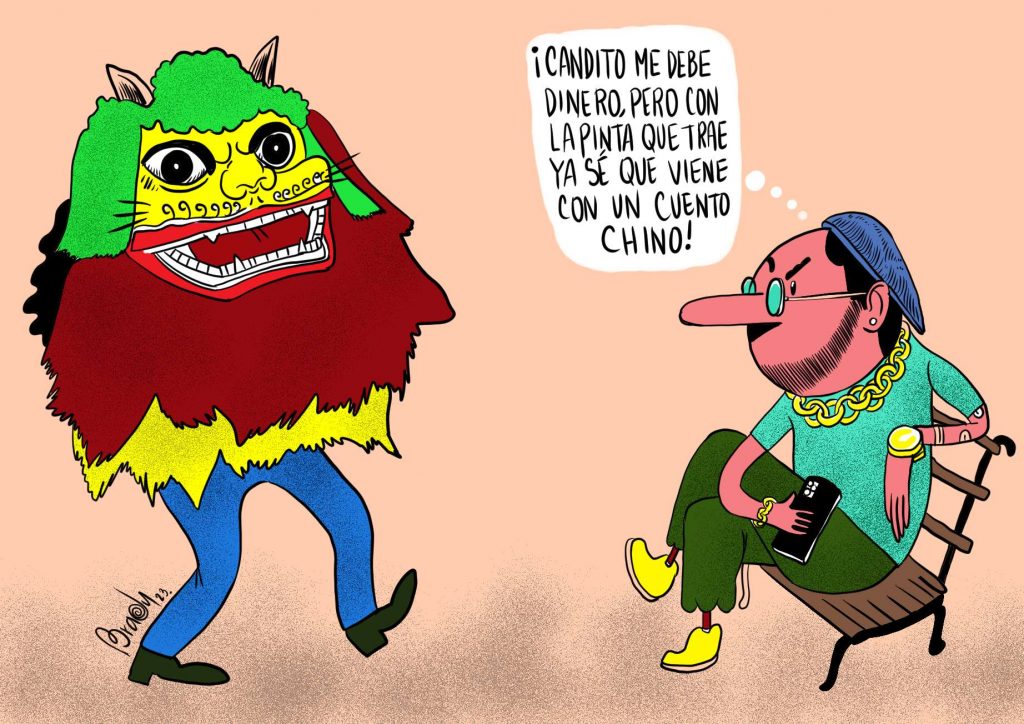Fable, history, story, narration, tale… There have been many ways of referring to that ancestral ability to recount events, arrange them in an entertaining way in order to captivate the audience and preserve, from generation to generation, events, facts and relevant moments of the culture of a people.
The short story is, in the field of literature, one of the oldest rhetorical structures. Brief, simple, dynamic: it is the ideal formula to transmit an idea, communicate a lesson, promote reflection on a matter, call attention to a social type, and all of this in an emphatic and concise manner. Hence the story, as a structure, has variants from the most elegant and perfectionist, to the most popular and neglected. The short story is cultivated in prestigious literary circles and is the form that daily communication resorts to on many occasions, be it in writing or orally.
It is not surprising that in a linguistically creative environment such as the Cuban one, both the story and its island appropriations have influenced curious and very particular expressions. In them we find from the most traditional and canonical idea of the story, to uses that take the term to a new horizon of semantic possibilities.
Very well known among us thanks to the creative ingenuity of Onelio Jorge Cardoso (known precisely as El Cuentero mayor), it is the character of Juan Candela who symbolizes like no other among us that sense of the “story” as an invention, exaggeration, “tupe” or , as it is said now, “inflatera”. Juan Candela perfectly illustrates this trait, which is not a virtue that is praised, but rather reveals who has the vice of fables; he is “a storyteller”, “a trickster with a title”.
It is important to prepare to deal with those storytellers that life puts us ahead. A precise and devastating phrase helps to deal with them when they give us an excuse for not completing a task, or when they do not offer clear information on a matter: “Don’t tell me any more stories.” Whoever enunciates it clearly establishes that he does not want more detours and needs a clear position on a certain issue.
And if you want to insist on the ability not to be fooled by any story, or to highlight the sagacity of the listener, you can dismiss the storyteller with a “to another with that story” or, better, “there is no Who tells me a story? The latter is the validation of great experience in a subject or subject, in a profession or in the performance of a specific activity, or simply indicative of wisdom accumulated over the years.
There are also storytellers who are not very skilled in varying themes. They insist over and over again on the same reason: a headache, congenital incapacity for physical exertion, lack of will and creativity. It is said of that that “it always comes with the same story”.
Cubans, apparently, do not like long stories. If a story lacks foundation or logic, if it doesn’t hold up or lacks credibility, we end it very easily: “that story is longer”. In the same way, we know how to correct ourselves if in the narrative of a story or event we lose the thread of what is central and a priority. We ourselves “call ourselves a chapter” and quickly return to the “chicken of rice with chicken”: “Well, not to make a long story…”.
Another issue that is of interest in the variants of the island “tale” is the relationship with its origin, which greatly determines the quality of what is exposed, its levels of veracity. Apparently, at some point in history, a dependency relationship was established between the credibility of the story and the place in which it is enunciated or exposed, because at least among us, nobody believes in “road stories.”
Hearsay stories, transmitted from traveler to traveler, give rise to fabrication, exaggeration, misrepresentation, a procedure that is not strange to us if we refer to the dynamics of the island’s rural environments. Nor do the stories from the Far East seem to be very reliable, since nothing is less credible for us Cubans than a “Chinese tale”. History qualified in this way is a cheap artifice, little elaborated, an inadmissible excuse.
Some uses of the tale among us have progressively moved away from the concrete notion of history or story to be better associated with more abstract ideas, and also with expressive formulas in which it is difficult to recognize the original meaning of the term.
It happens, for example, with that phrase that is so popular among us that it is “let go of the story”. Although it can be used in a literal sense, it can also be used almost as an exclamatory interjection that expresses surprise, admiration for an admirable fact or situation.
Something similar occurs with a copulative regime widely used in Cuba that has various variants: “with the mess and the story”, “with the story and the thing”, “with the story and the revelry”… This regime usually expresses the ability to trick, entertain or distract from a final purpose: with the mess and the story, he never came / with the story and the revelry, he ate the last piece…
Very popular as a closure of a conversation in which one wants to demonstrate knowledge of an end is the expression “I’m going to tell you a story” / “keep lending money to strange people and I’m going to tell you a story”. The curious thing here is that, contrary to what the phrase affirms, whoever proclaims it is not going to make any factual story, but rather aspires to confirm an end that he already foresees.
On other occasions we find uses that have a hyperbolic nuance such as “what do I tell you for”: “a trail formed that why do I tell you”. Whoever uses that expression does not question the fact of not counting, but rather tries to express with that silence the magnitude that a specific issue or event reached.
Sometimes the story is synonymous with a very marked interest in something or someone: “I don’t want a story with my shoes” / “I don’t want a story with my mom”, etc. Here, what you don’t want to count on, is an untouchable object or thing, to a certain extent sacred, for which an unrestricted sense of inviolability is claimed.
Expressions in which the act of counting has been integrated as a motivational axis to start a conversation or simply to maintain attention on the communicative act are also very nice, without necessarily referring to a literal sense of what they seem to be demanding. A “Tell, tell!”, not only asks to be told but places the emphasis on the need to know, on the establishment of a communicative situation conducive to that story.
More ambiguous and even paradoxical are two other expressions: “tell me something” and “don’t tell me!”. In the case of “tell me something”, it can have an obvious literal meaning that demands the story of an event of interest or relevance, but it is also used among us as an expression of astonishment that seeks to motivate the interlocutor to give an opinion or pronounce on that who listens: “I told him to open the door for me and he didn’t listen. ‘Tell me something!'”.
More contrastive is the effect of “don’t tell me”, since whoever resorts to the phrase does not deny the story he is hearing, but quite the opposite: he shows particular interest in the matter, with a nuance of disbelief. And to top it off, it is also a phrase that can be used sarcastically by someone who lacks interest in a specific matter.
Finally, and in a maximum degree of semantic emptying, we have a formula that has practically become a greeting among us Cubans: “what is counted!?”
In fact, more than question marks, exclamation marks seem to correspond to it. Before that sentence we do not need to tell anything, we are not asked to make a story. The most usual thing is to respond with some other friendly and imprecise formulation: “there, you know”, for example.
The story, as a rhetorical variant, has been successful among us. It can be said that we are storytelling experts. And, for better or worse, we learn from a young age to deal with all kinds of stories. The only thing that nobody seems to like is the story that is not done or cannot be done. If a Fulano or a Mengana, “did not tell the story”, well it went badly: the story, the speech, the story ran out.
I’ll be back soon with another “story”.














